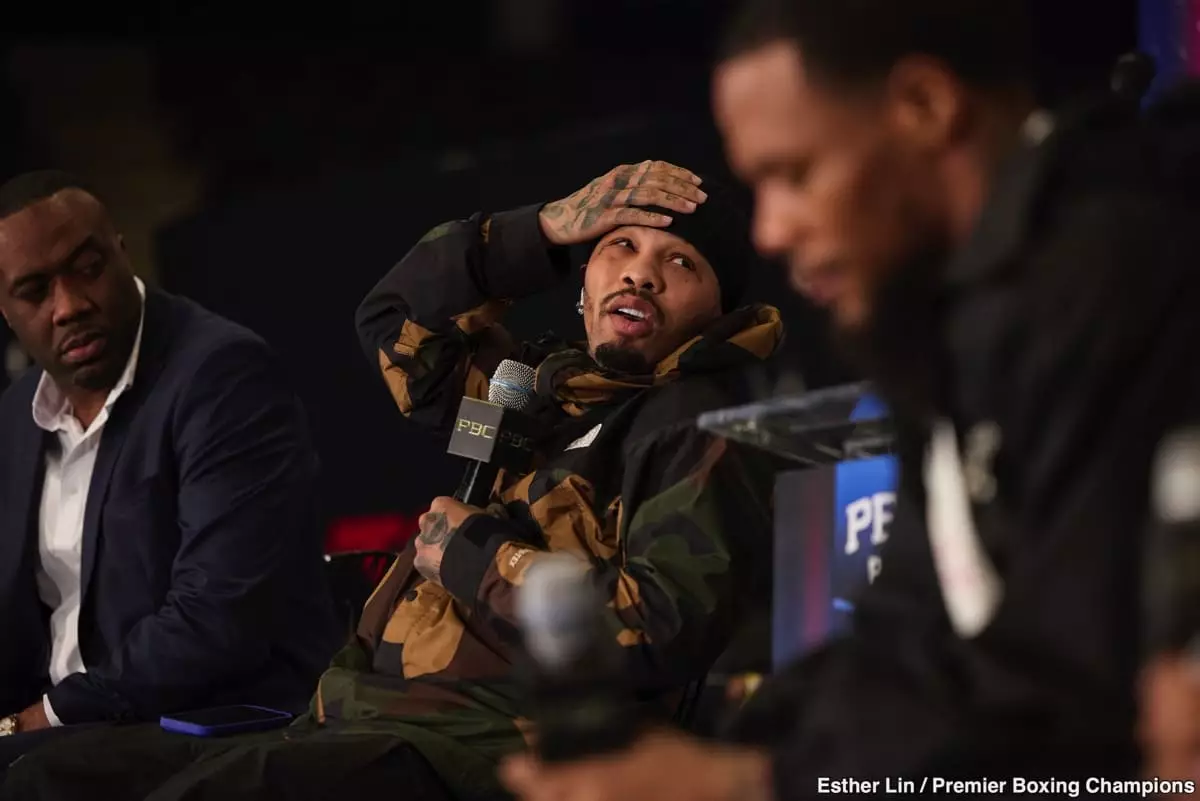The boxing world converged on London for the much-anticipated Ring Magazine Award show, often likened to the Oscars of boxing. Stars from various weight divisions and eras celebrated the accomplishments of their peers, basking in the limelight of a sport that thrives on drama both inside and outside the ring. However, the absence of notable names can often become a topic of conversation itself; one such absence was that of the undefeated lightweight champion Gervonta “Tank” Davis. His non-attendance, coupled with irate social media exchanges, has sparked a fascinating dialogue about the state of boxing and the emerging influence of new promoters in the game.
Gervonta Davis took to social media expressing his discontent with the situation surrounding the event. He directed criticism not only at Turki Alalashikh, the new owner of Ring Magazine, but also at the fighters who have chosen to pursue lucrative opportunities in Saudi Arabia. Davis’s points, laced with sarcasm and frustration, raised not just an eyebrow but a barrage of questions about loyalty, ambition, and the evolving nature of boxing promotions.
His messages were unguarded, riddled with phrases that signaled betrayal—terms like “d*** eaters” and comments about the folks fighting in front of meager audiences in Saudi Arabia reveal a raw vulnerability beneath the bravado. Davis appears to be grappling with feelings of estrangement from a sport and its figures he believes have compromised their integrity for financial gain. This sentiment is not merely a personal grievance; it speaks volumes about the shifting loyalties in boxing, where financial offers from foreign lands seem to be eclipsing traditional strongholds.
As boxing increasingly looks towards the Middle East for high-profile events, there’s a palpable tension within the community. Fighters, perhaps seeking their greatest paydays, have turned their heads toward Saudi Arabia, where vast financial resources can unlock fights that might feel unattainable elsewhere. This brings about a conundrum for the American boxing scene, which has historically been the epicenter of the sport. Are these fighters selling out? Are they to be blamed for chasing opportunities that many dream of?
Davis’s critique raises a compelling question: what is the price of success in boxing? A fighter’s career is notoriously short and laden with risks; the urge to secure a financially stable future is a valid one. Therefore, on one level, the pursuers of wealth in the Middle East reflect a rational decision-making process, borne from the reality that life after boxing can be uncertain. While Davis’s frustration might stem from a fear of fading into the background, the reality is that financial motivation and competitiveness are driving more fighters than ever to seek the best deals on the table, regardless of location.
The Underlying Jealousy: Davis’ Career and Missed Opportunities
One might wonder if Davis’s reaction is fueled by a sense of jealousy. As new promotional entities rise and existing stars make moves across the globe, does it bother him that he, despite his talents, isn’t partaking in the mega paydays? Would he, too, benefit from a partnership with Turki Alalashikh, even as he publicly denounces the perceived sellouts?
Despite his vocal disapproval, Davis may find that Alalashikh has intentions to bring fighters like Shakur Stevenson into the fold—alignments that could mean massive collisions in the ring that have the potential to redefine the lightweight division. These developments may evoke feelings of frustration for Davis, who sees the paths others are taking and is left wondering why those pathways didn’t extend towards him.
The evolving dynamics in boxing have laid bare the complexities of modern promotions, competitive rivalries, and financial motivations. Gervonta Davis’s outburst at recent events is not just a reflection of personal displeasure but a small window into a broader conflict that permeates the boxing community. As talented fighters continue to navigate their careers amidst such transformations, questions of loyalty and ethical pursuits will remain at the forefront. Davis’s plight might be emblematic of an industry grappling with its identity, caught between tradition and the allure of newfound wealth in unfamiliar territories. How the resolutions to these tensions will unfold remains to be seen, but for now, the landscape of boxing is undoubtedly in flux.


Leave a Reply